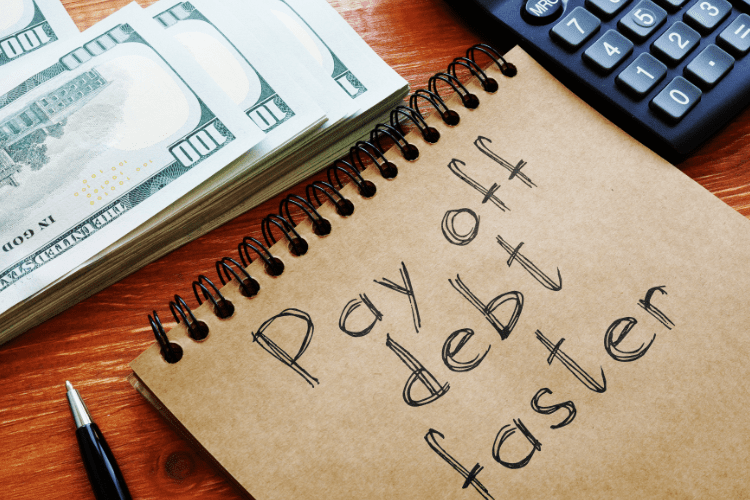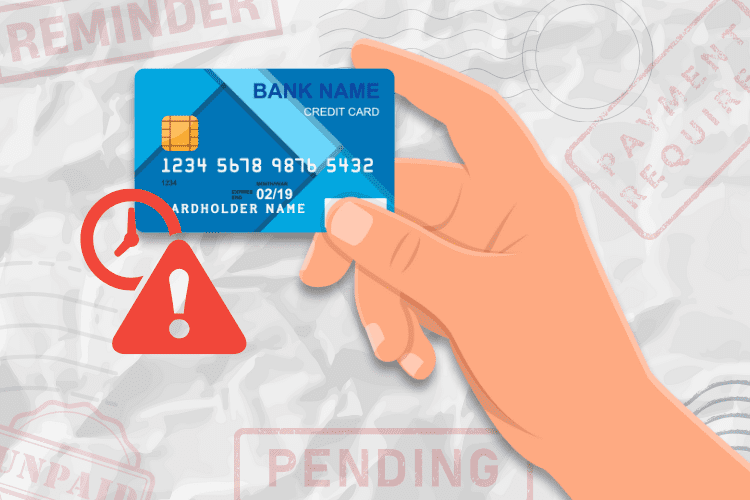10 Ways To Pay Your Debt And Crush Your Financial Goals Before 2025

So you promised yourself that 2024 was the year you’d kiss your debt goodbye. Yet, for one reason or another, it didn’t happen. Maybe…
- You randomly got laid off from a company you’ve been at for years
- You had a last-minute emergency that cost you thousands
- You went way over budget on your last vacation.
Regardless of what happened, you probably feel disappointed about falling short of your original goal.
Thankfully, there’s always time to get back on track. Here are 10 powerful strategies to crush your debt before the year ends.
1. Focus On High-Interest Debt First
Not all debt is created equal.
Credit cards and other short-term loans could help you escape a tight spot. But if you’re not careful, they could ruin your credit and spiral you further into a debt trap that’s near impossible to escape. Those initial $1,000 you took out could be $1,500 or even more with all the interest and late fees you end up paying.
Avoid getting stuck in this cycle, and prioritize these debts. The earlier you pay them off, the more money you’ll have toward your other goals.
2. Know Where The Money’s Going
Up to 40% of Americans forget about a subscription they sign up to.
Even if it’s only $20 per month, it can add up to hundreds over a year for something you don’t use. That money could’ve easily gone towards an extra credit card payment or in a high-yield savings account for when you need it.
To prevent this situation from happening, review your bank account quickly each month. It’ll make tracking (and stopping) any unwanted spending much easier before it gets out of hand.
3. Start A Side Hustle
Starting a side hustle has never been easier.
Loads of free or low-cost online courses can help you learn in-demand skills and land you a few side projects. If you don’t have the time to pick up new skills, platforms like Uber or Doordash have a low entry barrier and allow you to start earning a few short days or sooner.
With some research, you’ll find the perfect side hustle to help pay off your debt quickly.
Read more: TesterUp Review: Test Products And Earn Real Cash
4. Sell Things You Don’t Use
Do you have an old laptop, game console, or clothes you haven’t used in years? Maybe it’s time finally to say goodbye.
Platforms like Mercari, Poshmark, and even Facebook Marketplace have made selling stuff you don’t need a breeze. All you do is create an account, take pictures of what you’re trying to sell, and wait for someone to buy it.
You could even take it further and turn a one-time sale into a successful online business. Many people on these sites scout for used items in thrift stores and profit by reselling what they find at a markup.
Selling stuff is a quick way to earn cash when needed, whether you want to get rid of it or start a side hustle.
5. Ask For Overtime At Work
With the holiday season approaching, your company might be looking for workers to put in extra hours.
If you know your company’s busy during this time, don’t be afraid to volunteer. Speak to your manager and see if there’s an extra shift or project you can pick up temporarily.
Even a few extra hours a week could go a long way in helping you reach your financial goals faster.
6. Consider The Snowball Method
Let’s face it: seeing everything we owe can be overwhelming for most of us, especially when the debt is in the five—or six-figure range.
This is where the popular “snowball method” comes in.
Let’s say you have $5,000 of credit card debt spread over three cards: $500 on the first, $1,500 on the second, and $3,000 on the third. Instead of worrying about the $5,000, you tackle one card at a time, starting with the smallest. Once you pay that one, you “snowball” your way to the biggest one until you finally pay it off.
This approach helps you build momentum and stay motivated as you see your debt disappear over time.
7. Tap Into Your 401(k)
Did you know you could use your 401(k) to pay off debt?
Some plans let members take out loans on their accounts without affecting their credit scores. It’s an easy way to access the money you need and deal with high-interest loans or other emergencies.
However, you can’t take out more than 50% at a time. So if you have $20,000 in a 401(k), the biggest loan you’ll get is $10,000.
Companies will also give you a set amount of time to pay for everything back. If you don’t honor their terms, you’ll have serious tax penalties and fees that could wreak havoc on your retirement planning.
Please read the fine print and talk to a financial advisor before agreeing to anything if you plan on doing this route.
8. Negotiate With Creditors
Most borrowers think credit companies won’t negotiate with them.
And while some creditors may be stricter than others, it still doesn’t hurt to try. You’ll be surprised how many will allow you to catch up.
That said, don’t wait until the last minute to do something. Call your credit company and explain the situation to them immediately. They’re much more likely to cut you slack if they see you’re willing to come up with a solution.
9. Consider Home Modification Programs
A mortgage could take up a huge portion of your paycheck. And given the record-high inflation we’ve seen in the last few years, it’s no surprise millions of households can barely afford to keep up with their bills.
If you’re in this situation, a mortgage relief program could help you lower your monthly mortgage payments and free up more income to catch up on your other bills. Based on your situation, you can take advantage of plenty of programs, from refinancing to grants.
Talk to your mortgage provider to see your options and what you need to qualify.
10. Look Into Bankruptcy Options
If you still have trouble paying your debts, bankruptcy might be the best option.
This process gives you a fresh start and helps you rebuild your financial situation from scratch. From car payments to medical bills, most of your personal debts could disappear overnight.
But don’t think of rushing to your lawyer and starting paperwork just yet.
Even with all its pros, bankruptcy should be your last resort. Your credit score takes a huge hit; it could be years before you rebuild it. There’s also a lot of stigma against going bankrupt, so you might encounter issues with friends or family who disagree with your decision.
Think wisely and explore every option you have before taking this step.
The Bottom Line
Paying off your debt is an uphill battle for many of us, but don’t give up.
There are plenty of opportunities to help you catch up on bills and help you meet your financial goals in 2024 and beyond.
Read more:









